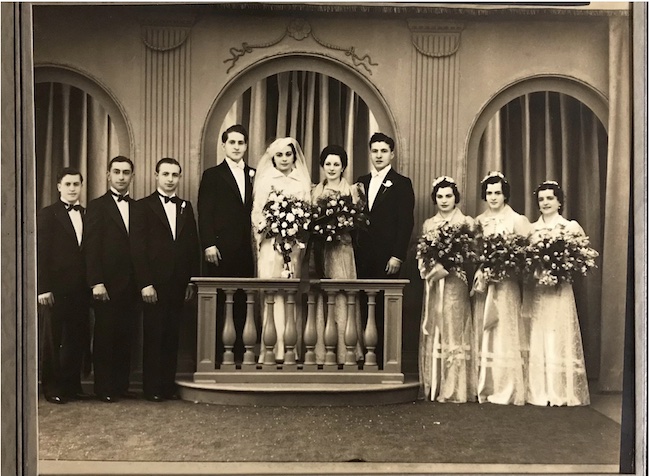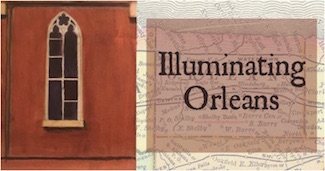Woman left at altar in 1911 among those who filed ‘Heart Balm’ lawsuits

Posted 19 February 2023 at 8:17 am

This is one of lots of unidentified wedding ceremony pics in the Orleans County Dept. of Record collection. Do you identify any member of this handsome team?
By Catherine Cooper, Orleans County Historian
Illuminating Orleans, Vol. 3 No. 7
 ALBION – Emma B. Tripp turned engaged to Louis J. Ives in 1908. They prepared to be married in April 1911. But Mr. Ives disappeared.
ALBION – Emma B. Tripp turned engaged to Louis J. Ives in 1908. They prepared to be married in April 1911. But Mr. Ives disappeared.
On February 19, 1913, as a substitute of savoring wedded bliss, Mrs. Tripp uncovered herself testifying from Mr. Ives before a jury at a Supreme Court docket trial held in Albion. Judge Warren B. Hooker presided.
Explained in the Democrat & Chronicle as “an desirable widow, gowned in deep mourning.” Mrs. Tripp was represented by attorney Harry Fox. She sought $10,000 in breach of guarantee damages.
Mr. Ives did not show up and was not represented.
Mrs. Tripp very first turned acquainted with Mr. Ives when he rented a suite of rooms at her boarding home in Buffalo in 1906. Prior to his move, Mr. Ives, a widower, experienced operated a prosperous create business in Medina, at 339 Main St. (currently Mystic Dragon’s Lair).
A friendship created in between the landlady and the tenant. They attended the theater and other entertainments with each other. Soon they ended up constant companions. Neither ended up in the whole flush of youth: Mrs. Tripp was then aged 51 and Mr. Ives was 65.
Mrs. Tripp testified that she assisted Mr. Ives in the enhancement and patenting of an induction product to dry wooden flooring and railroad ties. Many prominent Buffalo businessmen invested cash in a company which he formed to provide the product.
In his letters to her, which were being go through right before the courtroom, Mr. Ives referred to her as “Honey”, “My darling” and “Love”. He wrote poems expressing his timeless really like for her.
A single night, shortly just before April 1911, the pair attended a dinner at the household of close friends in Buffalo. At 1 issue, Mr. Ives excused himself and mentioned that “he would be again in a number of minutes.” But he did not return. Mrs. Tripp read from him the following day. He said he experienced been named to Lockport instantly on company and that he would be back the up coming working day. She did not see him yet again. At the time of the trial, Mr. Ives was mentioned to be living in St. Catharines, Ontario.
The jury discovered in favor of Mrs. Tripp and awarded her $2,000 in damages.
Breach of promise actions pertaining to courtship or marriage cases had been also referred to as “heart balm” situations. At a time when women relied on marriage for monetary security, it was understood that an engagement was a guarantee to marry, a binding contract involving two folks and that the wounded bash could pursue money compensation if one individual broke the contract with out consulting the other.
Upon her engagement, a female would have discontinued the pursuit of other suitors, consequently restricting long term marriage prospective clients. A woman in Mrs. Tripp’s predicament would have felt embarrassment, humiliation, and concern for her status. Few would have relished the scrutiny and loss of privacy involved with a community courtroom case.
In the subsequent a long time, a collection of superior profile and salacious coronary heart balm instances created adverse publicity:
“$100,000 Heart Balm Award Won by Author’s To start with Wife” – (Chicago, 1935)
“Twice Wed Mrs. Fogarty Seeks $500,000 Breach of Assure In opposition to Gene Tunney” – (Bridgeport, Ct., 1929)
These are just two of several these types of headlines. Community impression steadily shifted to favor the accused, considering the fact that the “injured parties” seemed to be conniving grafters.
On March 20, 1935, a monthly bill sponsored by Senator John McNaboe of Manhattan was passed. It aimed to control the “racketeering” involved with breach of guarantee and alienation of passion instances. By 1945, sixteen states had abolished breach of promise regulations.
Mrs. Tripp returned to Buffalo and vanished into obscurity. Mr. Ives died in 1925 in Mineola, New York, at the residence of his daughter.
“Hell hath no fury like a woman scorned.”








